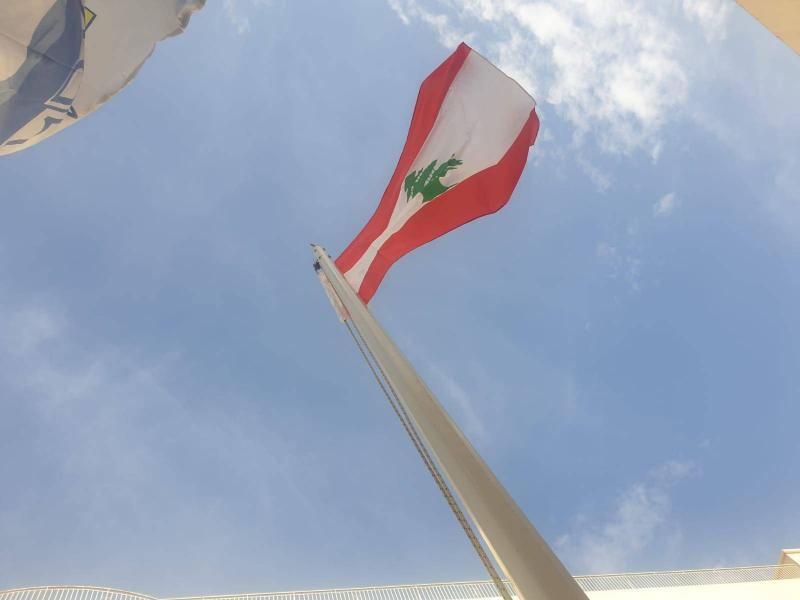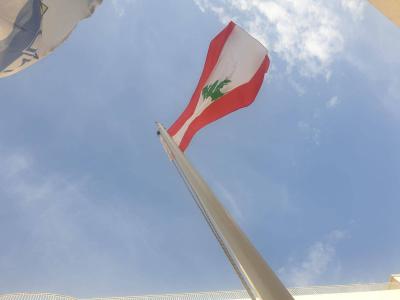Lebanon's issue regarding the statement issued by its Foreign Ministry condemning the Russian invasion of Ukraine has entered a phase of containment and settlement. This was marked by Foreign Minister Abdullah Bou Habib informing the ambassadors of France and Germany that Lebanon would abstain from voting in favor of a resolution presented by certain countries, specifically Germany and France, at the Security Council. The Lebanese stance on voting will also be considered if the matter is raised at the UN General Assembly, following its failure due to a Russian veto at the Security Council, in consultation with the Arab group, and it is certain that there will be no vote.
This position regarding voting at the UN represents a retreat by the Foreign Ministry in front of the parties that are vocal about the Russian invasion, as part of an effort to overcome the political division caused by the statement condemning the invasion. Minister Bou Habib responded to the opposition to the announced statement, both in the Cabinet and outside, saying: "I am wearing armor, shoot me alone on this statement." This statement aims at protecting President Michel Aoun from being targeted, holding only himself accountable for the statement, relying on American-European protective support.
Prior to the Russian and allied objections to the statement, there was welcomed support from France and Germany, as expressed by the ambassadors of those countries in Beirut during their meetings with Minister Bou Habib.
The Lebanese government was informed yesterday that Poland has allowed Lebanese nationals in Ukraine to cross its borders without a visa for a period not exceeding 15 days, and also that Romania decided to grant free visas to those wishing to cross its borders from Ukraine. However, the Foreign Minister informed Prime Minister Najib Mikati that the borders have not yet opened, while the political boundaries established by the Foreign Ministry's statement condemning the Russian invasion of Ukraine remain under processing, in an effort to unify the government's perspective on what is happening in Ukraine and Eastern Europe, between those who view the Russian attack as a protest and those who categorize it as a national security defense operation.
The first objection came from the Speaker of Parliament Nabih Berri, followed by Hezbollah, which registered its objection through Labor Minister Mustafa Birem within the Cabinet, considering that the Foreign Ministry's statement contradicts the principle of neutrality, in addition to the lack of consultation within the government, which places the Lebanese state at the burden and repercussions of this statement.
For his part, MP Ibrahim Al-Moussawi (Hezbollah) said: "They distance themselves from responsibility, they begin neutrality when they want, and intervene when they wish; it's a strange matter." He questioned: "What foreign policy does Lebanon follow, and where is our interest in that? Our Foreign Minister Abdullah Bou Habib should clarify for us!"
In this context, the advisor to the President for Russian affairs, Amel Abu Zaid, stated that the Foreign Minister faced pressure to issue the statement regarding Russia, and that the head of the Free Patriotic Movement, Gebran Bassil, contacted the Russian ambassador and expressed his dissatisfaction with the Foreign Ministry's statement. Abu Zaid announced plans to visit Moscow to clarify Lebanon's position.
The Russian embassy in Beirut issued a statement asserting that the Lebanese Foreign Ministry's statement contradicted the policy of self-distancing and justified the war on Ukraine as a measure to protect national security. Russian Ambassador in Beirut Alexander Rudakov is holding a press conference today to explain the situation.
Opposition to the Foreign Ministry's statement also extended to the Lebanese community in Russia, while the Lebanese ambassador in Ukraine, Ali Dahir, refrained from commenting, stating: "As a government employee, I comply with the order." However, the most painful response came from the Syrian Social Nationalist Party, which called for Minister Bou Habib to apologize or resign, claiming that the Russian military operation preserves European security.
Meanwhile, the British ambassador Tom Fletcher visited Army Commander General Joseph Aoun, General Director of Internal Security Forces Major General Imad Othman, and General Director of General Security Major General Abbas Ibrahim, delivering a unified message emphasizing the importance Britain places on stabilizing the situation in Lebanon and preventing security tensions from Syria from spilling over, warning against plans aimed at destabilizing Lebanon.
Additionally, French Foreign Minister Jean-Yves Le Drian is scheduled to arrive in Beirut on March 3, with Ambassador Pierre Duquesne accompanying him to oversee ongoing discussions with the International Monetary Fund as part of the financial recovery plan laid out by the government.
Electorally, the head of the Lebanese Forces Party, Dr. Samir Geagea, announced the candidacy of former MP Fadi Karam for the Orthodox seat in the Koura district, stating that his party encourages voters to choose Lebanon as represented by figures like Camille Chamoun, Fouad Shehad, and Rafik Hariri, rather than the Lebanon of missiles and drones, asserting that the Lebanese citizen will choose a better future for their children.
Geagea also mocked claims regarding the purpose of launching drones to establish a balance of deterrence, addressing Hezbollah without naming it, saying: "First, this is not your concern but that of the Lebanese army, and second, your drone does not establish a balance of deterrence; there is no need to deceive people. You are deceiving your own environment and your public, whose citizens are searching for a loaf of bread and a medicine; it is unreasonable to involve them in such adventures." He considered upcoming elections to be extraordinary, aiming to transform Lebanon into the Switzerland of the East.
On the government front, the Cabinet approved in its last meeting at the presidential palace the electricity plan in principle, which relies on a series of ongoing measures, including increasing tariffs after improving supply to 8 to 10 hours daily, while considering low-income individuals whose monthly consumption does not exceed 500 kilowatts. It also includes improving bill collections through the use of smart meters and forming a regulatory body for electricity matters.
Energy Minister Walid Fayyad stated: "Now we can proceed with negotiations with the World Bank to secure the necessary funding."




